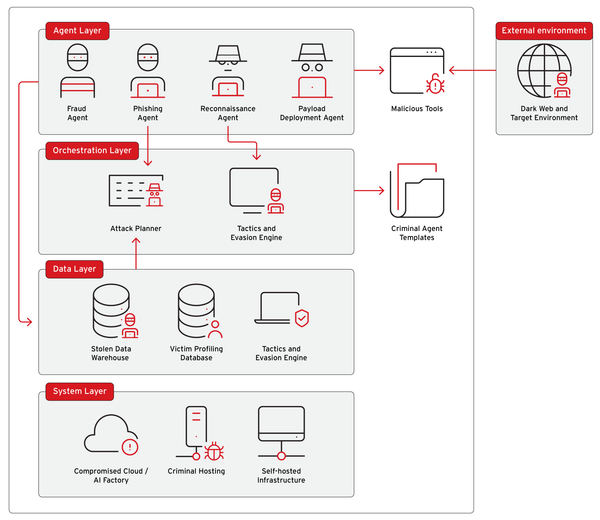Netherlands Scams 2025: Europe's Digital Hub Under Siege – When High Literacy Meets Sophisticated Targeting

Executive Summary
The Netherlands, renowned as Europe's most digitally advanced economy and a global logistics powerhouse, faces a paradox in 2025: despite having one of the world's highest digital literacy rates, the nation now leads all European Economic Area countries in digital payment fraud. With €1.75 billion ($1.94 billion) lost to scams in 2024—approximately 0.2% of GDP—and one in seven Dutch citizens falling victim, the country's sophisticated financial infrastructure has become both an asset and a target. The convergence of Rotterdam port operations, Amsterdam's financial services hub, and cutting-edge payment systems has created a high-value ecosystem that attracts increasingly advanced criminal enterprises.
The Crisis in Numbers
The scale of fraud targeting the Netherlands reveals a nation under unprecedented digital assault:
National Impact Statistics
- €1.75 billion in total scam losses (2024)
- 2.4 million residents (aged 15+) victims of online crime
- 9.4% of Dutch population fell victim to online fraud in 2024
- 1-in-7 Dutch citizens scammed annually
- €53 million lost through fraud hotline-reported cases (20% increase)
- 63,469 fraud attempts reported (10% increase)
- Only 1% of victims able to recover losses
Banking and Payment Fraud
- €23 million lost to bank helpdesk fraud alone
- 6,900 individuals scammed by fake bank employees (30% decline from 2023, but still significant)
- Netherlands leads all EEA countries in digital payment fraud volume, losses, and fraud rate
- 38% increase in scam encounters year-over-year
- 10,000 scam calls reported in Q1 2025 alone (3x increase from previous year)
Underreporting Crisis
- 82% of victims chose NOT to report scams to law enforcement (9% increase from 2023)
- Only 22% contact police after being scammed
- 54% report to their banks, but not authorities
- 80% never recover their stolen money
- Only 1% recover funds through criminal justice system
Emotional and Social Impact
- 42% of victims reported lower trust in society
- 25% feel less safe after being scammed
- 10% experience psychological distress (anxiety, depression, sleep disruption)
- 40% say their experience caused them to lose trust in online interactions
Financial Intelligence Surge
- 3.5 million unusual transaction reports filed in 2024 (vs. 2.3 million in 2023)
- 118,408 suspicious transaction reports (STRs)
- €17.5 billion in financial value linked to STRs
- 15 transactions exceeding €100 million each
Why the Netherlands? The Perfect Storm
Digital Infrastructure Excellence Creates Vulnerability
The Netherlands' strengths have become exploited weaknesses:
Rotterdam Port - Europe's Gateway Rotterdam, Europe's largest port, faces specific cyber threats including "storage spoofing"—a fraud targeting international companies seeking fuel storage, where criminals sell non-existent storage capacities and stocks in port terminals. The port's critical role in global supply chains makes it a high-value target for sophisticated criminal operations.
Financial Services Hub Amsterdam's status as a major European financial center, hosting numerous fintech companies and payment processors, creates concentrated opportunities for fraud. The Netherlands now ranks highest among all EEA countries for total digital payment fraud volume, fraud losses, and overall fraud rate according to the European Banking Authority.
Payment Innovation Leadership The Dutch have been pioneers in digital payments, with extremely high adoption of contactless payments, mobile banking, and instant transfer systems—creating a large attack surface for scammers.
High Digital Literacy Doesn't Equal Immunity
Despite their digital sophistication, 58% of Dutch citizens believe they can identify scams—a 4% drop compared to last year—while 43% of scam victims are unsure if AI was used against them. This false confidence creates vulnerability as criminals deploy increasingly sophisticated tactics.
Top Scam Types Devastating the Netherlands
1. Bank Helpdesk Fraud (Bankhelpdeskfraude)
The most notorious scam targeting Dutch citizens:
In 2024, nearly 6,900 individuals reported being scammed by criminals posing as bank employees—representing €23 million in losses despite a 30% decrease in cases from 2023.
How It Works:
- Criminals call victims pretending to be bank security officers
- Claim the victim's account has been compromised
- Request PIN codes, bank cards, or direct transfers to "secure" accounts
- May arrange in-person visits to collect cards, cash, or valuables
- Use spoofing technology to display legitimate bank phone numbers
Sophistication Level: Scammers exploit publicly available personal data to make their schemes more convincing, addressing victims by name and referencing recent transactions.
Dutch-Specific Twist: Some criminals physically collect bank cards from elderly victims, claiming to "secure" them, then immediately drain accounts at ATMs.
2. Purchase Fraud (Aankoopfraude)
The most common scam type in the Netherlands:
Platforms Targeted:
- Marktplaats (Dutch classified ads platform)
- Facebook Marketplace
- Other second-hand marketplaces
Common Scenarios:
- Fake listings for high-demand items (electronics, cars, concert tickets)
- Advance payment requested, goods never delivered
- Escrow service scams (fake payment protection)
- Overpayment scams targeting sellers
Seven percent of Dutch residents fell victim to purchase fraud, where goods or services paid for online were never delivered.
3. WhatsApp Fraud (WhatsApp-oplichting)
Family impersonation scams have become epidemic:
"Help, Mom!" Scenario:
- Criminals compromise WhatsApp accounts or create fake profiles
- Message family members claiming phone is broken/new number
- Request urgent money transfers for supposed emergencies
- Create emotional pressure to act quickly
Romance Scams via WhatsApp: Romance scams have seen a significant spike over the past year, often transitioning to investment fraud ("pig butchering").





